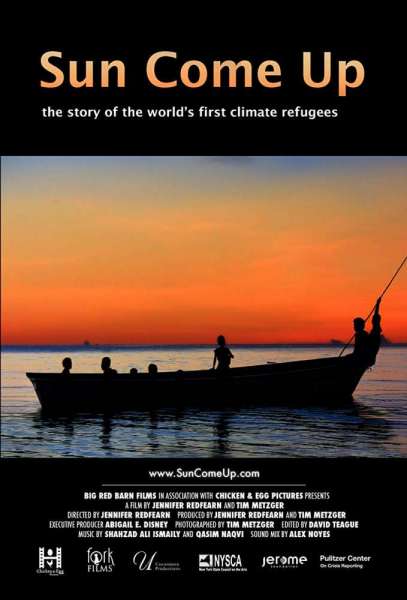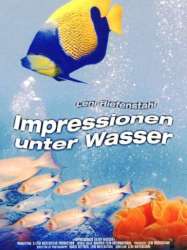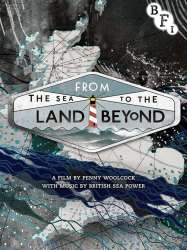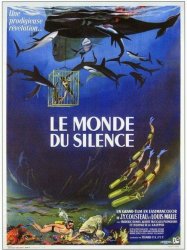Sun Come Up is a american film of genre Documentary released in USA on 3 april 2011
Sun Come Up (2011)

If you like this film, let us know!
- Infos
- Casting
- Technical infos
- Photos
- Videos
- Film quotes
- Characters
- Music
- Awards
Released in USA 3 april 2011
Length 38minutes
OriginUSA
Genres Documentary
Themes Environmental films, Seafaring films, Transport films, Documentary films about environmental issues, Documentary films about nature, Disaster films
Rating68%










Sun Come Up is a 2010 documentary film on the effect of global warming on the Carteret Islands. The film showed at the 2010 Full Frame Documentary Film Festival on April 8. It was named as a nominee for the Academy Award for Best Documentary (Short Subject) at the 83rd Academy Awards on January 25, 2011 but lost to Strangers No More.
Comments
Leave comment :
Suggestions of similar film to Sun Come Up
There are 8965 with the same cinematographic genres, 8907 films with the same themes (including 0 films with the same 6 themes than Sun Come Up), to have finally 70 suggestions of similar films.If you liked Sun Come Up, you will probably like those similar films :

The White Planet (2006)
, 1h20Directed by Thierry Ragobert
Origin Canada
Genres Documentary
Themes Films about animals, Environmental films, Seafaring films, Transport films, Cétacé, Documentary films about environmental issues, Documentary films about nature, Mise en scène d'un cétacé
Rating67%





Sous la poussée de forces invisibles, la banquise se brise. Les bœufs musqués courbent l'échine sous le blizzard. Les caribous galopent par milliers dans la toundra. Les ours blancs se défient. Les baleines boréales défoncent la banquise. Le narval dresse hors de l'eau son incroyable dent torsadée.
 , 1h33
, 1h33Directed by Jacques-Yves Cousteau, Philippe Cousteau, Marshall Flaum
Origin France
Genres Documentary
Themes Environmental films, Seafaring films, Transport films, Documentary films about environmental issues, Documentary films about nature
Rating71%





In December 1975 The Cousteau Society starts a four months expedition through Antarctica. The expedition also relies on Monaco's Oceanographic Museum and on La Rochelle Natural History Museum, that latter represented on board by Raymond Duguy (1927 - 2012), its by time director.

Underwater Impressions (2002)
, 45minutesDirected by Leni Riefenstahl
Origin German
Genres Documentary
Themes Environmental films, Seafaring films, Transport films, Documentary films about environmental issues, Documentary films about nature
Actors Leni Riefenstahl
Rating71%





The marine-based documentary was mainly shot around Papua New Guinea, and is a collection of footage directed by Riefenstahl between the 1970s and 2000. Other film locations included the Maldive Islands the Seychelles, Kenya, Tanzania, Indonesia, the Red Sea, the Cocos Islands (Pacific) and the Caribbean Sea (Cuba). Riefenstahl dismissed claims that the film was a comeback; "Impressionen Unterwasser certainly isn't a 'comeback'. I was always active and continue to be so. My film shows the beauty of the underwater world. I hope it will touch the viewer's conscience as it illustrates just what the world will lose when nothing is done to stop the destruction of our oceans. I once said that I am fascinated by the beautiful and the living. I seek harmony and, under water, I have found it.

Sharkwater (2006)
, 1h29Directed by Rob Stewart
Origin Canada
Genres Documentary
Themes Films about animals, Environmental films, Seafaring films, Politique, Transport films, Films about sharks, Documentary films about animal rights, Documentaire animalier, Documentary films about law, Documentary films about environmental issues, Mise en scène d'un poisson, Political films, Documentary films about nature
Actors Trey Parker, Matt Stone, Rob Stewart
Rating78%





Depuis l'enfance, Rob Stewart se passionne pour les requins. À tel point qu'il est devenu biologiste et photographe sous-marin afin de pouvoir nager avec eux, décrypter leur mystère et déconstruire le mythe du requin mangeur d'hommes. Ce mythe, entièrement fabriqué, serait selon lui responsable de l'indifférence qui entoure, un peu partout dans le monde, le massacre de la population de requins à des fins commerciales. Du Costa Rica aux Îles Galapagos en passant par le Guatemala, Stewart et l'équipage de l'activiste des mers Paul Watson tentent de dénoncer et de mettre en échec les braconniers à la solde de mafias asiatiques soutenues par des gouvernements corrompus. Il y va de l'équilibre écologique de la planète.

Directed by Penny Woolcock
Origin United-kingdom
Genres Documentary
Themes Films about animals, Environmental films, Seafaring films, Transport films, Documentary films about environmental issues, Documentary films about technology, Documentary films about nature
Rating79%






The Silent World (1956)
, 1h26Directed by Louis Malle, Jacques-Yves Cousteau
Origin France
Genres Documentary, Adventure
Themes Environmental films, Seafaring films, Transport films, Documentary films about environmental issues, Documentary films about nature
Actors Jacques-Yves Cousteau
Rating68%





Voilà enfin le film de Cousteau et Malle, oscarisé et palme d'Or en 1956 à Cannes, édité en DVD et Blu-ray au niveau de qualité qu'il mérite, qui plus est pour la première fois avec des suppléments !! Tout d'abord le travail de restauration qui a été accompli sur le film est absolument bluffant. Et les suppléments sont inédits, donc intéressants aussi pour ceux qui connaissent le film par coeur.Un documentaire de 50 minutes en HD sur la production du film intitulé « du Silence et des hommes : les pionniers du Monde du Silence ». Le documentaire s'intéresse à la première rencontre entre Louis Malle, alors élève à l'IDHEC et le Commandant Cousteau, le défi technique et humain du film, la Palme d'or à Cannes, la polémique autour du film, qui apparut quelques années plus tard, et les différends au montage entre Malle et Cousteau sur la tonalité globale du film etc.

Ama Girls (1958)
, 29minutesDirected by Ben Sharpsteen
Origin USA
Genres Documentary
Themes Environmental films, Seafaring films, Transport films, Documentary films about environmental issues, Documentary films about nature, Children's films
Actors Winston Hibler
Rating62%





Le film présente les ama, des plongeuses en apnée japonaises, connues comme pêcheuses de perles.

The Cove (2009)
, 1h27Origin USA
Genres Documentary, Crime
Themes Films about animals, Environmental films, Seafaring films, Transport films, Cétacé, Documentary films about animal rights, Documentary films about law, Documentary films about environmental issues, Political films, Documentary films about nature, Mise en scène d'un cétacé
Actors Hayden Panettiere, Isabel Lucas, Louie Psihoyos
Rating83%





The film follows former dolphin trainer and activist Ric O'Barry's quest to document the dolphin hunting operations in Taiji, Wakayama, Japan. In the 1960s, O'Barry helped capture and train the five wild dolphins who shared the role of "Flipper" in the hit television series of the same name. The show, very popular, fueled widespread public adoration of dolphins, influencing the development of marine parks that included dolphins in their attractions. After one of the dolphins, in O'Barry's opinion, committed a form of suicide in his arms by closing her blowhole voluntarily in order to suffocate, O'Barry came to see the dolphin's captivity and the dolphin capture industry as a curse, not a blessing. Days later, he was arrested off the island of Bimini, attempting to cut a hole in the sea pen in order to set free a captured dolphin. Since then, according to the film, O'Barry has dedicated himself full-time as an advocate on behalf of dolphins around the world.

Caring for the Lagoon (2011)
, 52minutesDirected by Oliver Dickinson
Origin France
Genres Documentary
Themes Films set in Africa, Environmental films, Seafaring films, Transport films, Documentary films about environmental issues, Documentary films about nature
Le sublime lagon de Mayotte, île de l’océan Indien, est au cœur de la vie des Mahorais. Ils le savent et luttent pour son intégrité. De la montagne boisée à la mangrove et à la mer, nous avons croisé hommes, femmes et enfants à l’œuvre, tortues marines et concombres de mer, jusqu’à la chatoyante colonie des coraux au fond de l’eau turquoise. Le lagon de Mayotte est le berceau d’un projet plein d’espoir : préparer dès aujourd’hui un avenir écologiquement, socialement, économiquement durable.

Blackfish (2013)
, 1h24Origin USA
Genres Documentary
Themes Films about animals, Environmental films, Seafaring films, Politique, Transport films, Documentary films about animal rights, Documentaire animalier, Documentary films about law, Documentary films about environmental issues, Mise en scène d'un poisson, Political films, Documentary films about nature, Mise en scène d'un cétacé
Actors James Earl Jones, Whoopi Goldberg, Anderson Cooper
Rating80%





The documentary focuses on the captivity of Tilikum, an orca involved in the deaths of three individuals, and the consequences of keeping orcas in captivity. The coverage of Tilikum includes his capture in 1983 off the coast of Iceland, and purported harassment by fellow captive orcas at Sealand of the Pacific, incidents that Cowperthwaite argues contributed to the orca's aggression and includes testimonial from Lori Marino, Director of Science with the Nonhuman Rights Project. Cowperthwaite also focuses on SeaWorld's claims that lifespans of orcas in captivity are comparable to those in the wild, typically 30 years for males and 50 years for females, a claim the film argues is false. Interview subjects also include former SeaWorld trainers, such as John Hargrove, who describe their experiences with Tilikum and other captive whales.
 Connection
Connection